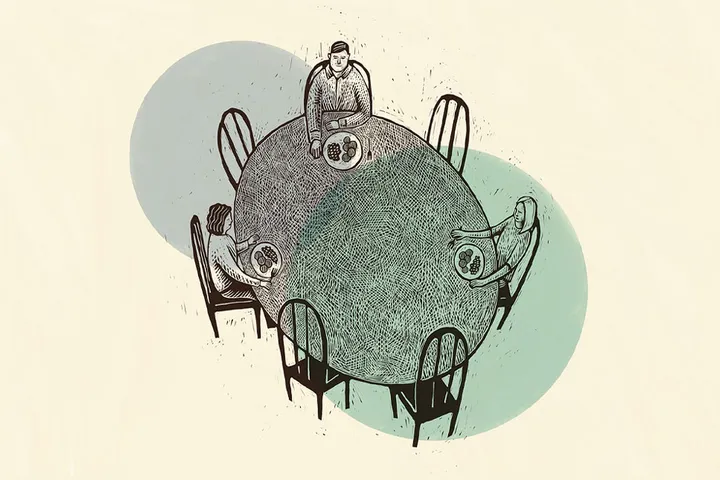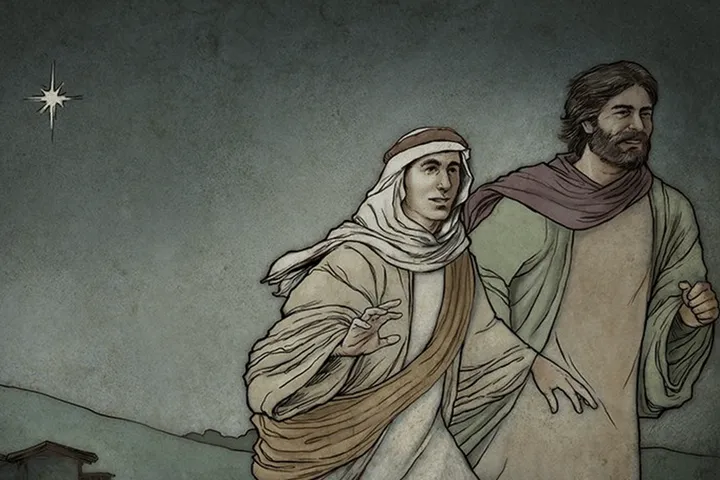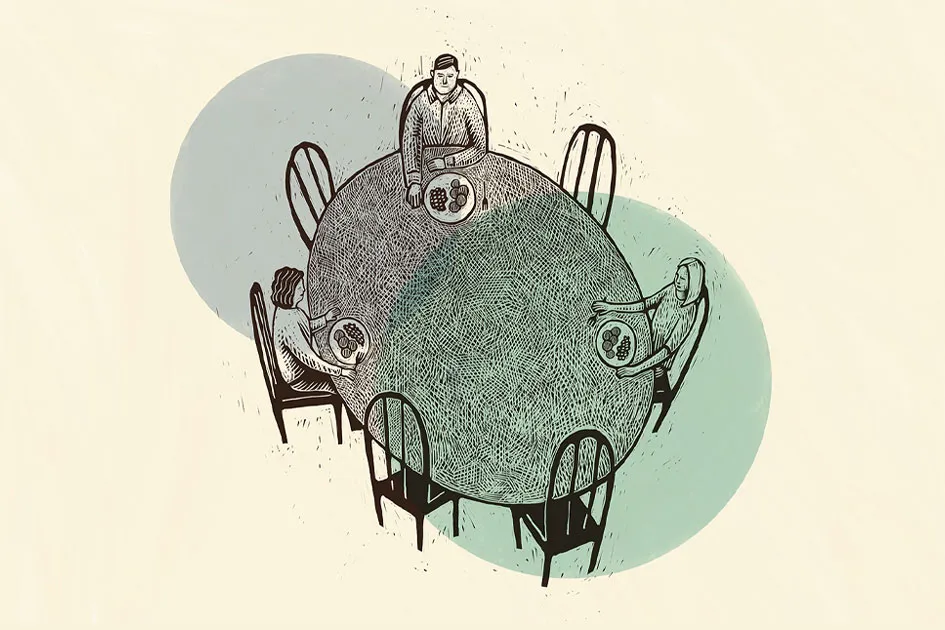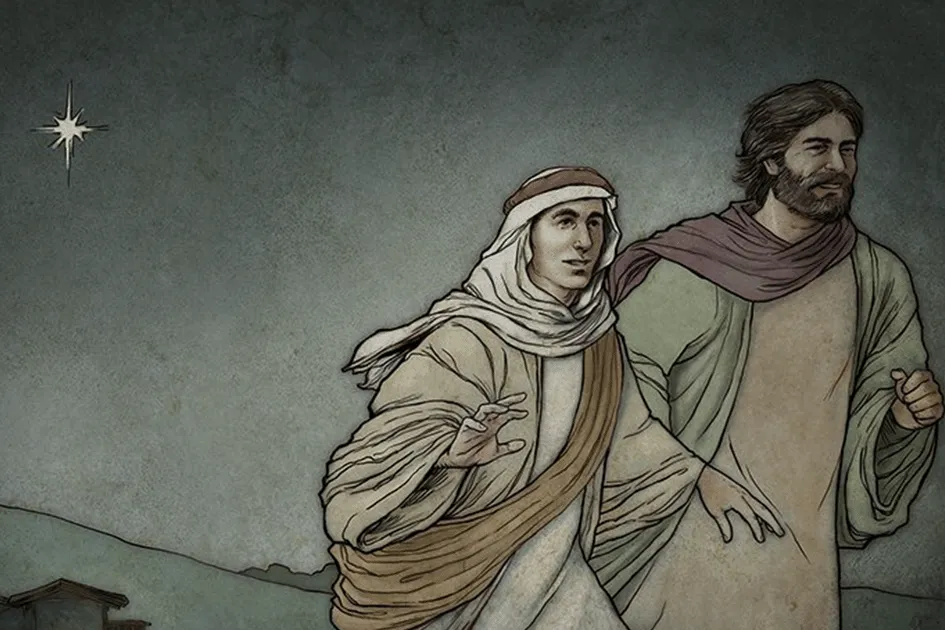Editor's Note: As we face this global pandemic together, the In Touch editorial team will publish a new essay each Friday to help you remember what’s certain in uncertain times.
I’m my father’s daughter. We’re both meticulous planners, and that’s why, when the first chatter about COVID-19 began circulating, I went into full-action mode and prepared for a long haul at home. I even decided to invest in building raised garden beds so we could stave off cabin fever and begin growing food for ourselves and neighbors. Yet not everyone is a fan of what I’ve done. In fact, several people have told me they’re disappointed because, in their opinion, my work demonstrates a lack of faith in God. One went so far as to say my planting a garden was driven entirely by fear. And while I don’t agree with their assessment, I’ll admit my confidence has wavered over the last month.

There are days when I hear stories of people dying alone in the hospital and am absolutely undone. My faith falters when I read about the rise in domestic abuse cases and the spread of infection in prisons and homeless shelters across the country because there’s no way to observe proper distancing protocols. Doctors and nurses are going without personal protective equipment and falling ill themselves, patients are dying for lack of a ventilator, and people fear being forced out of their homes because they can’t make rent. So many of the things I’ve been told I can rely on—state and federal governments, the healthcare system, basic civic goodness—have proven inadequate, and it’s difficult to keep myself from asking what will fail next. I’ve always known that civilization stands on a knife’s edge, but that knowing is cold comfort when I see something else has fallen apart. Yes, some days my thoughts are fearful, and that’s when my handwashing (and handwringing) become excessive.
Lately, I keep thinking of the story about the father who brings his demon-possessed son to Jesus for healing. The “spirit … makes him mute; and whenever it seizes him, it slams him to the ground and he foams at the mouth, and grinds his teeth and stiffens out” (Mark 9:17-18). Unlike the Gerasene demoniac who was left to wander “night and day among the tombs” (Mark 5:5 ESV), this boy has been home with a father who rescues him from death time and again (Mark 9:22).
It’s my prayer on the bad days: “Yes, God. I believe You can protect me and my loved ones. I believe You’re on the throne, that You can heal the sick, that You can stop this virus … help my unbelief.”
It’s no wonder the poor man’s exhausted, no wonder he looks into the Savior’s face and says, “If You can do anything, take pity on us and help us” (Mark 9:22). It’s likely that every other healer and religious leader he’s sought out has failed him; even Christ’s own disciples were ineffective just moments before. The poor soul has no reason to expect this prophet he’s heard about to be any different. Ah, but God.
Rather than chastise the man, Jesus gently corrects him, saying, “‘If you can?’ All things are possible to him who believes” (Mark 9:23). I imagine kindness in Christ’s eyes as He looks at the father—kindness as well as unmistakable power and authority. And that’s why the man, overcome with it all, shouts the words that have become my constant refrain in this strange time: “I do believe; help my unbelief” (Mark 9:24).
It’s my prayer on the bad days when I’m worried about my brother, who is still making deliveries. Or my father, who works in retail and comes into contact with hundreds of people, any one of which could pass the virus to him. It’s my prayer when my husband goes out to make a supply run in my place because I have multiple sclerosis and am immunocompromised: “Yes, God. I believe You can protect me and my loved ones. I believe You’re on the throne, that You can heal the sick, that You can stop this virus … help my unbelief.”
To Christ, my plea to “help my unbelief” is not a barrier but a bridge that brings me closer.
It’s a hard truth to face, but the fact is that I’m very good at saying I believe and filling my calendar with church commitments to prove it. But there’s no way to put up that façade now. With each month’s schedule now an expanse of white, stark as the arctic tundra, the true state of my faith is laid bare. I have no way to mask its deficiencies without all that good busyness. Only Jesus sees me in my weakness these days, but thankfully there’s not an ounce of judgment to be found there—only love and compassion. To Him, my plea to “help my unbelief” is not a barrier but a bridge that brings me closer.
The coronavirus is unlike anything we’ve been asked to deal with in the last century, so we must process what’s happening around the world, and in our own little corners of it, the way we work out our salvation—with fear and trembling, one day at a time. Hence, doubt is to be expected, not rebuked. In those moments when I’ve experienced unbelief, it’s important to realize I haven’t somehow failed. And neither have you. The problem arises when we act from that place of distrust. If we focus only on the problem, whether that’s a mysterious and deadly virus or a child plagued with a demon, of course we’re bound to lose perspective. When we feel that tendency in ourselves, we must remember to refocus on Christ. When we look into His face, we can be certain of where our help comes from.
Today is Good Friday, the day when Christ endured the height of His passion to ransom us back from true hopelessness, death, and despair. And during those long hours, many people missed the mark. Peter denied Jesus three times, and of the 12 men who followed the Messiah, only one could stand firm at the foot of the cross with the women and bear witness to His suffering. When Jesus said, “It is finished!” bowed His head, and gave up His spirit, it’s likely that no one saw the newness of life that was to come—only the end of their own dreams and ambitions for the coming kingdom (John 19:30).
The coronavirus is something we must process what’s happening around the world, and in our own little corners of it, the way we work out our salvation—with fear and trembling, one day at a time.
There was no more work to be done, nowhere to go. Sounds familiar, doesn’t it? We, too, have been rendered immobile in more ways than one. Not only are we physically restricted, but also everything that made us feel safe until now—jobs and 401(k)s, bank accounts and college degrees—have been made ephemeral as shadow and air. But our true assurance was never in these things. I pray we remember the lessons of this particular Good Friday and place our hope in a source that will never fail—the One who promised to make all things new.
In years past, it was easy to mock the disciples cowering in fear or roll my eyes at Thomas’s need to place his fingers in Jesus’ wounds. But not now … and likely never again. I, too, sometimes look at the mounting troubles of the world and temporarily forget the One who overcame it. But I’m still loved beyond measure, my fault forgiven before I ever gave it voice.
So from this year forward I’m going to believe, however imperfectly. And I’m going to plant vegetables, water them, and wait excitedly for them to grow. Because if there’s one thing I know as a follower of Jesus Christ, it’s that my Savior loves to defy expectations—and the best proof of this happened in a garden three days after all hope seemed lost.
Art by Jonathan Todryk





